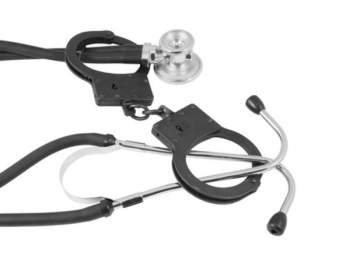
Malpractice Suits Against Doctors

Popular In Malpractice
Malpractice Attorney Contributory Negligence Malpractice Law Overview Statute Of Limitations Standard Of Care Medical Malpractice Defense Good Samaritan Acts Fraudulent Concealment Of Evidence Punitive Damages Proving Negligence Medical Malpractice Overview Express Implied Contracts From A Physician
When do you have a Malpractice Suits Against Doctors?
If an individual has been injured due to the negligent treatment by a physician, nurse, psychiatrist, etc. that individual may have a claim for MALPRACTICE AGAINST A DOCTOR. In the typical situation a patient will go into a doctor's office for treatment of an illness, surgery, or psychiatric treatment and he/she comes out of the treatment in a worse condition then when he/she arrived there is a presumption that there may have been medical malpractice. Malpractice Suits Against Doctors can also be maintained for breach of the doctor/patient confidence.
Malpractice Suits Against Doctors: RESPONDENT SUPERIOR
Whether the MEDICAL MALPRACTICE was the result of the doctor's negligence in performing his duties, the nurse's malpractice in administering exams or the administrations negligence in properly filing documents the doctor can and will be liable.
This is the doctrine of Respondeat Superior which states, "an employer will be held liable for an employee's wrongful or negligent actions." In this sense it is the doctor's responsibility to monitor his employees and if malpractice results from those employees' actions then the doctor (employer) should be held liable.
WHAT ABOUT MY DOCTOR/PATIENT CONFIDENTIALITY?
The doctor/patient confidentiality privilege is one of the most sacred privileges adopted by law. That being it said, certain circumstances can cause an individual's confidentiality to be waived. When an individual files Malpractice suits against doctors, he/she opens the door for the waiver of all confidential information given to that doctor pertaining to that treatment.



















